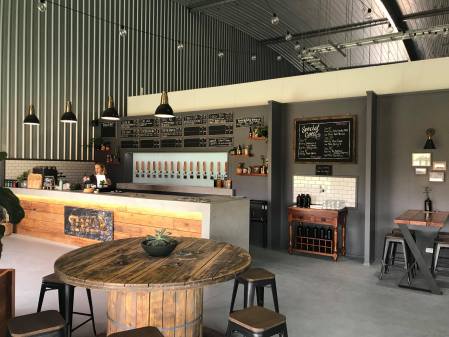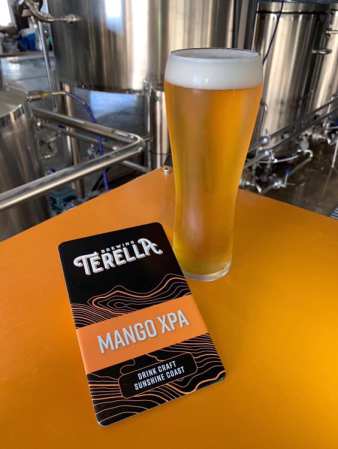
Newly opened brewery Terella Brewing is working with its farmer landlord to reduce its carbon footprint.
The brewery, which is located in North Arm, near the Sunshine Coast, is housed within an indoor ‘vertical barn system’, set within 69 acres. The shed has 1800 sq m of space and is nine metres tall.
“It’s an aircraft hangar, essentially,” Brandt Bamford, who founded the brewery with friend Torren Read and the farm’s owner Ashley Thompson, told Beer & Brewer.
Within the shed itself, leafy greens are grown vertically using a system that aims to optimise plant growth and soil-free farming practices. Terrela itself means ‘little earth’ in Latin, ironically.
By keeping the shed at a certain humidity required to keep out moulds and fungi, the farm will ultimately provide the brewery with demineralised water.
“So we’ve got a blank canvas,” says Bamford, who started homebrewing on a Coopers homebrew kit 10 years ago before finding himself with $30,000 worth of equipment in his shed. “We’re currently using rainwater until we can implement the filtration systems needed to utilise that water for it’s pretty cool.
“We’re able to match water profiles from anywhere on the planet.”
The brewery also intends to capture the CO2 generated by the fermentation process and use that to bolster the plants’ growth. The team will “scrub it, compress it and then reinject it back into the vertical farm system”.
The farm was already set up to receive CO2 injections, which improve yields, but the cost of importing the gas proved too expensive to be worthwhile.
“For us to be able to harvest that and then reinject it to them is a no brainer,” explains Bamford.

Terella currently has a core range of five beers – a pale ale, a mango XPA, a session ale, a European lager and a hazy IPA – but the team is also creating other beers, which is kegged or bottled at the brewery’s bottling line.
“On top of those five beers, we’ve got a Belgian blood orange, a macadamia nut brown ale and yesterday we brewed a salted caramel stout,” says Bamford.
The brewery also runs 30 head of Black Angus cattle on the farm, which is fed by the spent grain and in turn feeds customers.
“People can come in, try a tasting panel, grab some greens, a six-pack and a steak on the way home,” says Bamford.
